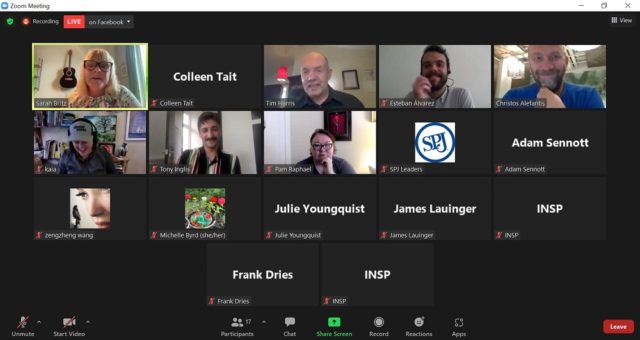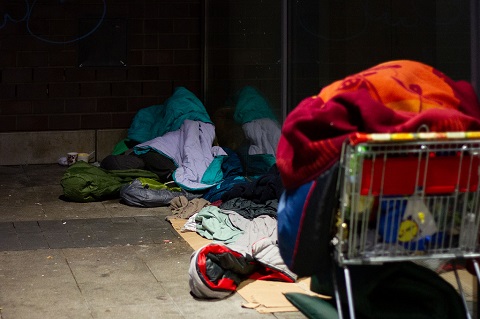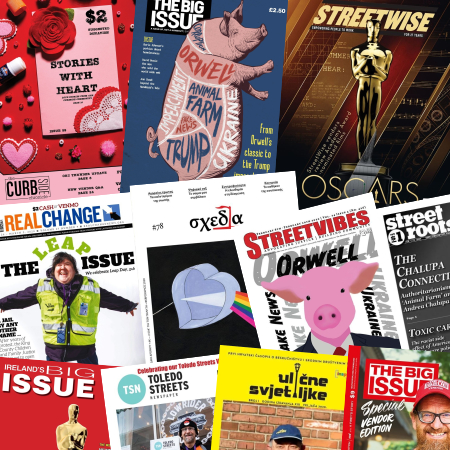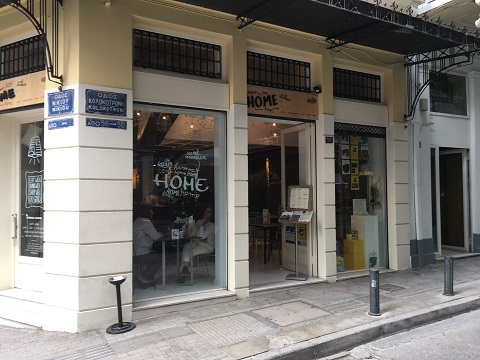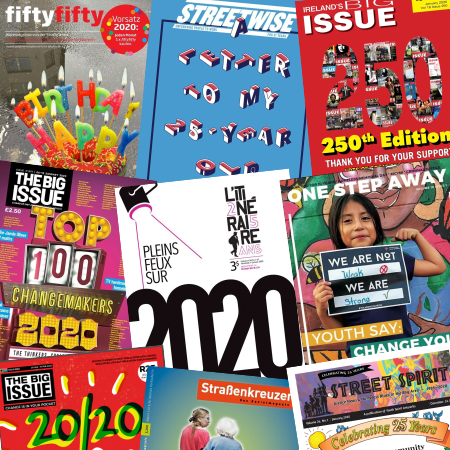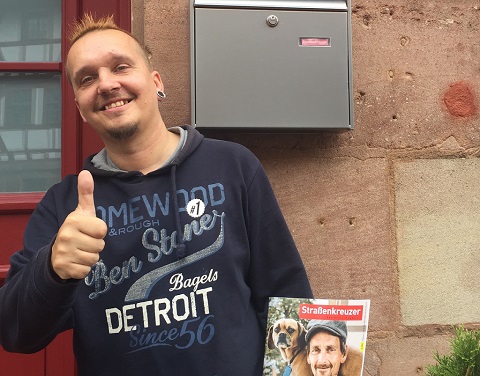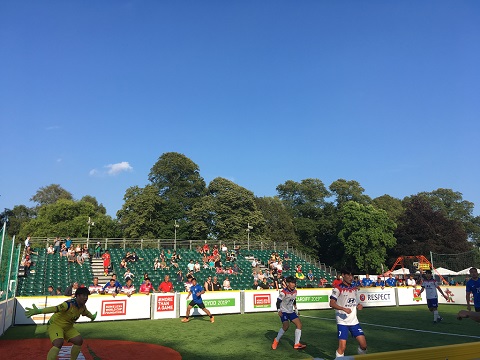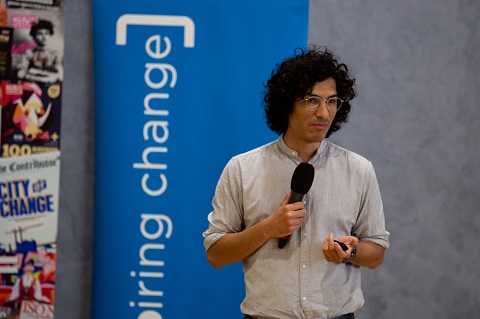Katharina is one of the editors of Nuremberg street paper Strassenkreuzer. This June, she attended the INSP Global Street Paper Summit in Athens. This is her report of the whirlwind three-day event, which featured top speakers, lots of great ideas – and a celebration of an inspiring network.

By Katharina Wasmeier, Strassenkreuzer
Once a year, representatives of street papers, organised under the international umbrella organisation of INSP, convene to discuss concerns, successes, innovations and setbacks during a summit that lasts several days. In addition to workshops, presentations and renowned guests, the 20th Global Street Paper Summit in Athens provided the opportunity to network in abundance.
“Here, the best thing is the realisation that you’re not living and working in some kind of isolated bubble, but are part of a gigantic family that’s pursuing the same goal all over the world,” says INSP board member and President Director of Brazilian street paper Ocas”, Thiago Massagardi.
To take part in the five-day summit, the 36-year-old had come especially from Sao Paolo, Brazil, but he hadn’t come the furthest distance by any means. The delegates arrived from Canada, Taiwan, South Africa and Australia. But they also hail from everywhere in Europe, with Germany contributing 21 of the 120 delegates alone.
The summit is a very busy event. Athens is vast, loud and hot. The delegates – journalists, project coordinators, vendors and fundraisers – are no slackers. The agenda starts first thing in the morning.
“Some 112 street papers from 35 countries are part of our network,” explains Maree Aldam, INSP’s CEO. Last year, 25,000 vendors sold papers to 5.7 million readers worldwide, earning €29.4 million in the process.

Attendees repeatedly emphasise that vendors are the focus of all projects and that these people are their bosses. It’s all about them. The question is: how can people who have got into financial difficulties be put back on the right track and given a purpose in life?
The responses cover a range of initiatives, such as the ‘Invisible Man’ film campaign by the Danish street paper Hus Forbi. This grapples with the core issue of all street papers, which is that vendors often feel invisible.
Another example is presented by our Greek colleagues from Shedia. In collaboration with the university, editor-in-chief Christos Alefantis has placed silk worms in office spaces. These are fed and looked after by vendors and after pupation, soap and silk thread is made. “This gives people responsibility and a goal at the same time,” explains Alefantis, while his German wife Katrin shows how to make attractive decorations from unsold papers.

There’s plenty to marvel at, and to listen to, particularly in the case of the guest speakers invited by INSP. One such person is Yanis Varoufakis, the former Greek finance minister, who tends to polarise. He talks about his attempts to get his country’s finances on a firm footing and how a society full of murky practices eventually put a halt to his plans. Or veteran journalist Nicholas Voulelis who started a major independent daily paper which is now a well-oiled operation.
In addition to keynote talks and smaller sessions – which ask questions like: ‘what do our readers want?’; ‘how do you tell stories with pictures?’ or ‘how do I get the attention of potential donors?’ – there was also a great deal more to discover.
On the one hand there were the organised tours like the Invisible City Tour, similar to the Schicht-Wechsel tours organised by Nuremberg’s Strassenkreuzer street paper, which show important areas where poverty and homelessness prevail. On the other hand, a visit to a refugee camp was also offered. The same question was repeatedly asked: how can we best support our vendors?

The INSP Awards 2016 in the Onassis Cultural Centre offer a backdrop to introduce and present accolades to all the street paper projects, articles or initiatives that an independent panel of judges believes are worthy of a prize. With so many fantastic submissions, it’s definitely an honour to rank among the first five – like the Strassenkreuzer CD, for example.
And of course it’s an even greater honour to win an award – like bodo, a street paper from the Ruhr area of Germany, for its work with Roma people. Similarly to everywhere in Germany, the producers of bodo were confronted by increasing prejudice towards this ethnic group. Years of intensive lobbying, information events, the foundation of a network and the Freundeskreis Roma und nEUbürger project have helped lead a change in attitudes, which has now even enabled a Roma festival organised by the town council to take place. The message here is the same: our job is to combat poverty, wherever it comes from.

And that’s clearly something worth celebrating. Partying with, and celebrating this fantastic and inspiring family is a must. And even if after just under a week heads were left spinning, languages were muddled up, nobody could concentrate anymore and there was lots of sleep to catch up on… in the end everybody’s looking forward to meeting up again.






